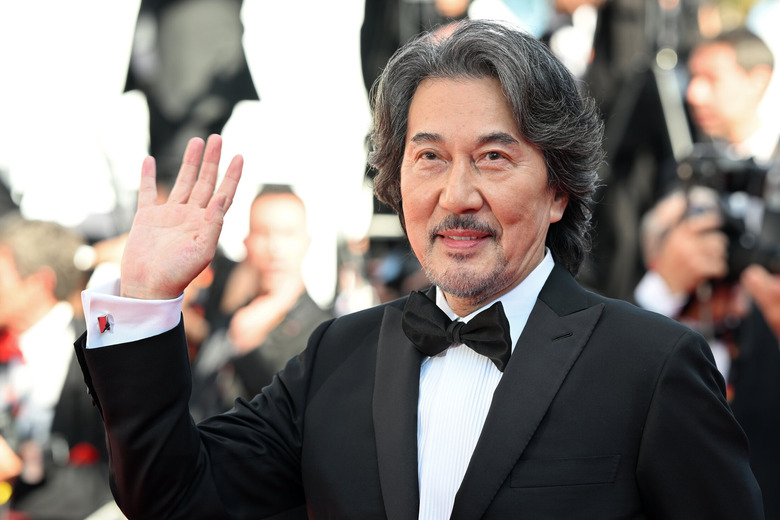Hulu Is Streaming One Of The Best Films Of The Year, A Dreamy Japanese Drama About Mindfulness
A low-key, contemplative Japanese drama about a middle-aged man who works as a toilet cleaner in Tokyo, living a routine and ordinary life, might not sound like the most exciting material for a feature-length film. But I promise you this about Perfect Days; if you let it, director Wim Wenders' dreamy meditation about discovering profundity in the mundane and the serenity that can come from solitude is so good that it might just change your life.
A lofty promise, I know. But the reason for this is partly due to the performance of veteran Japanese actor Koji Yakusho (shown above). He plays Hirayama, a trim and mild-mannered man with an air of refinement and charisma in spite of his modest living conditions (a sparsely decorated apartment where he reads a paperback every night) and his unglamorous profession: Every morning, he drives a van to clean high-end toilets around Tokyo's trendy Shibuya district.
The surprising thing, at least at first, is the contentment he seems to feel about it all.
Throughout Perfect Days, which is streaming on Hulu, Hirayama both displays and shares his ascetic, seemingly ego-less philosophy — which is, basically, that everything in the world is already in its right place. And that, as such, one of the most consequential acts a person can take is simply to be. "Next time is next time," he says at one point in the movie to his niece Niko, with an impish smile on his face. "Now is now."
During that scene, which comes about an hour or so into the movie, they're both cycling over a Tokyo bridge. And if your Instagram Explore page is anything like mine, this is the scene from Perfect Days that's been all over it.
Accompanying Hirayama on his travels is a beloved mix tape that includes everything from The Animals' rendition of House of the Rising Sun to Pale Blue Eyes by The Velvet Underground (he listens to music on cassette, naturally). His is a simple life — but the ordinariness that pervades Perfect Days is not to suggest that nothing much happens.
Yes, Hirayama spends time when he's not at work taking walks in the park. Sometimes, he bumps up against the chaos of others, such as by working around the foibles of his boisterous younger colleague and tenderly caring for his teenage niece when she shows up at his door. Watching it all unfold, I was reminded here and there of a line from a Philip Larkin poem: "Where can we live, but days?"
If there's a message to be found in this near-masterpiece of a movie, it probably comes down to something as simple as: Choose happiness. And, maybe, that it doesn't hurt to have a thoughtfully curated mixtape to accompany you on your journey. But also, don't stress if you find yourself slipping up now and again and forgetting to be fully present in each moment.
Like the man said: Next time is next time.
